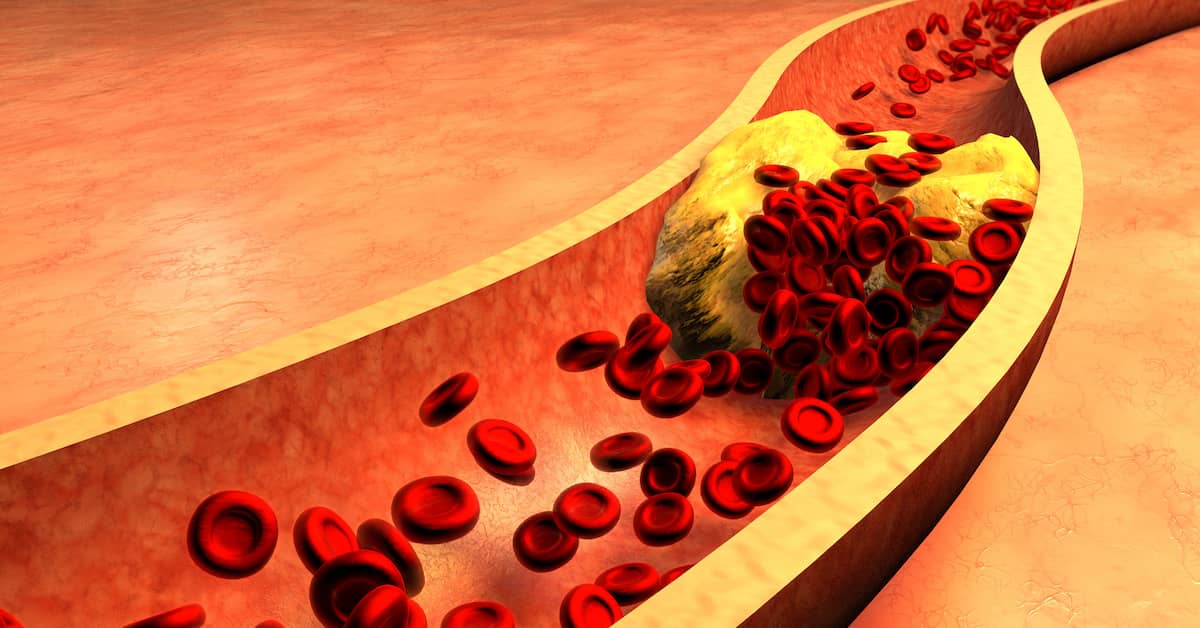
Leading Indicator of Arterial Damage
Two years later, researchers from McGill University, Montreal, Canada, claimed that the number of apoB particles in the bloodstream is a more accurate measure of arterial damage than the amount of LDL they contain.The evidence is "solid and secure," they wrote, and they believe there's no reason not to adopt apoB as a routine measure in clinical practice. Now, rather than LDL, apoB has been dubbed "the new bad cholesterol."Since apoB provides an accurate gauge of the condition of the arteries, and has also been linked to other serious diseases, scientists in the United Kingdom wondered what it could tell us regarding longevity.High Levels Shorten Lifespan
For their study a team from the Universities of Oxford and Bristol used the U.K. Biobank, which contains medical and genetic data from half a million volunteers.The team asked participants at enrollment whether their father, mother, or siblings had any of a dozen diseases that can lead to premature death. Additionally, they asked these individuals whether their mother and father were still alive, and if not, at what age they died.After looking at the association between apoB and these diseases among the participants' first-degree relatives, they compared the findings to previously published results. They also sought confirmation of their findings by performing a genome-wide association study (an approach used in genetics research that links specific genetic variations with particular diseases).They summed up their comprehensive analysis as follows: "Our findings support apoB as being the major lipoprotein entity implicated in the aetiology of coronary heart disease and stroke and identify that higher apoB decreases lifespan and increases the risk of type-2 diabetes."These findings highlight the crucial role of apoB in causing cardiometabolic disease [heart attack, stroke, angina, insulin resistance, diabetes, non-alcoholic fatty liver disease], which collectively shortens the lifespan."How to Lower apoB
While apoB may be a key indicator of atherosclerosis, it doesn't necessarily mean apoB, or the LDL cholesterol it carries, is itself the culprit. Some researchers believe metabolic mayhem driven by insulin resistance is what creates high apoB. Indeed this is likely because cholesterol-lowering drugs have not been very successful at reducing heart disease. They are treating a symptom rather than the root cause.Insulin resistance caused by chronically higher blood sugar is what leads, skeptics believe, to an abnormal cholesterol profile with low HDL, high LDL, and high triglycerides.Whatever the underlying cause, getting blood sugar under control is crucial because insulin decreases apoB secretion and promotes its clearance. Several human studies have shown people with insulin resistance and diabetes have much higher apoB levels.People who don't get enough sleep also have higher apoB and the mechanism could be the same. Poor quality and quantity of sleep is associated with insulin resistance.Since insulin resistance is also linked to cardiovascular disease, some forms of cancer, and Alzheimer's, getting this under control is key to lowering a high level of apoB.There are lots of ways to improve insulin sensitivity. Apart from getting a good night's sleep, it can be helped with exercise, stress reduction, lowering weight, and eating more fruit, vegetables, and fiber, while cutting out unhealthy carbohydrates and added sugars.Supplements are also available that help to control blood sugar, such as chromium and berberine.- https://www.ncbi.nlm.nih.gov/pmc/articles/PMC5310383/ Apolipoprotein B-containing lipoproteins and atherosclerotic cardiovascular disease
- https://www.ahajournals.org/doi/full/10.1161/CIRCRESAHA.119.315019 ApoB: The Power of Physiology to Transform the Prevention of Cardiovascular Disease
- https://www.thelancet.com/journals/lanhl/article/PIIS2666-7568(21)00086-6/fulltext Effects of apolipoprotein B on lifespan and risks of major diseases including type 2 diabetes: a mendelian randomisation analysis using outcomes in first-degree relatives
- https://www.ncbi.nlm.nih.gov/pmc/articles/PMC3810413/ The Regulation of ApoB Metabolism by Insulin
- https://www.ncbi.nlm.nih.gov/pmc/articles/PMC3767932/ Sleep disorders and the development of insulin resistance and obesity
